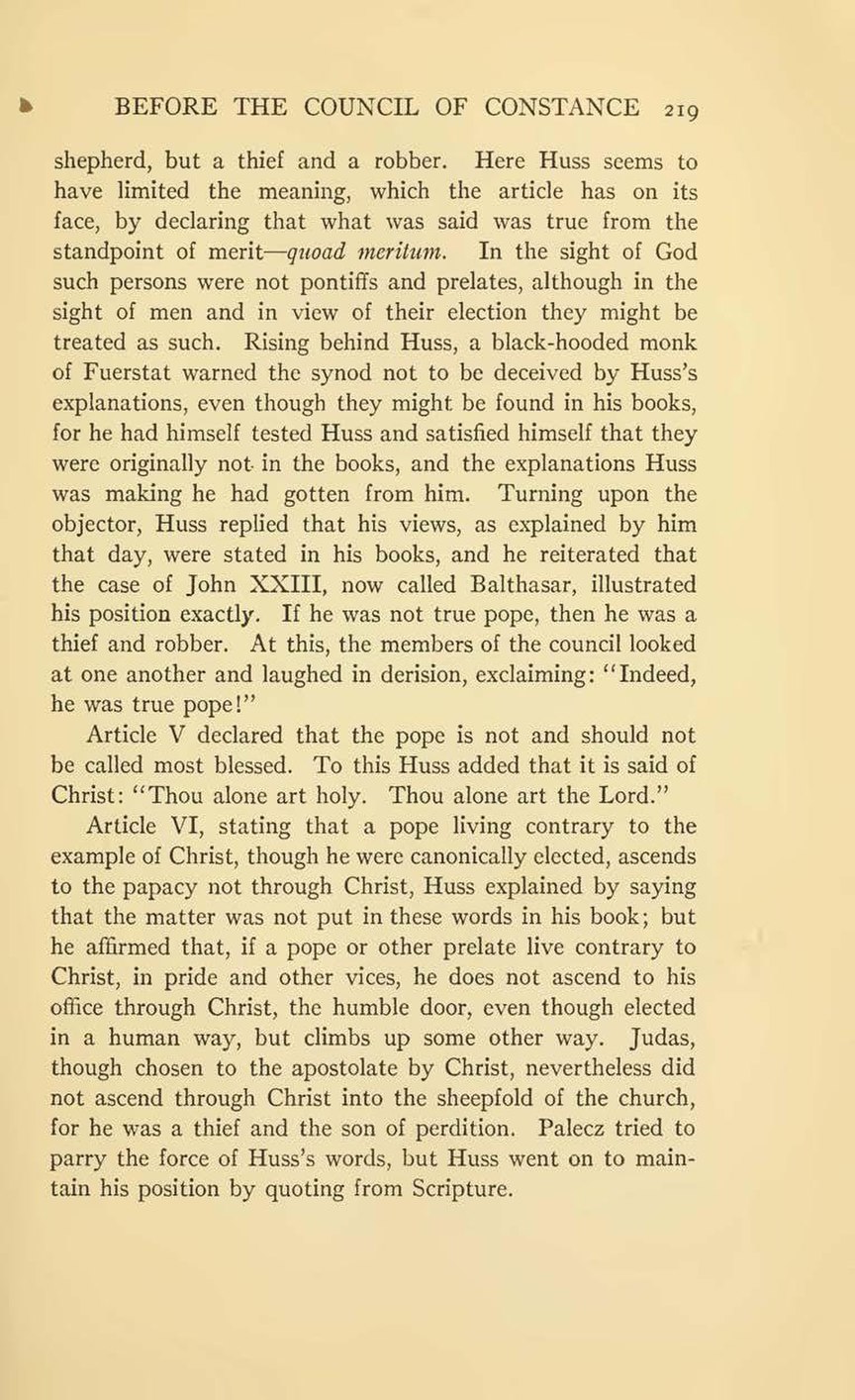shepherd, but a thief and a robber. Here Huss seems to have limited the meaning, which the article has on its face, by declaring that what was said was true from the standpoint of merit—quoad meritum. In the sight of God such persons were not pontiffs and prelates, although in the sight of men and in view of their election they might be treated as such. Rising behind Huss, a black-hooded monk of Fuerstat warned the synod not to be deceived by Huss’s explanations, even though they might be found in his books, for he had himself tested Huss and satisfied himself that they were originally not in the books, and the explanations Huss was making he had gotten from him. Turning upon the objector, Huss replied that his views, as explained by him that day, were stated in his books, and he reiterated that the case of John XXIII, now called Balthasar, illustrated his position exactly. If he was not true pope, then he was a thief and robber. At this, the members of the council looked at one another and laughed in derision, exclaiming: “Indeed, he was true pope!”
Article V declared that the pope is not and should not be called most blessed. To this Huss added that it is said of Christ: “Thou alone art holy. Thou alone art the Lord.”
Article VI, stating that a pope living contrary to the example of Christ, though he were canonically elected, ascends to the papacy not through Christ, Huss explained by saying that the matter was not put in these words in his book; but he affirmed that, if a pope or other prelate live contrary to Christ, in pride and other vices, he does not ascend to his office through Christ, the humble door, even though elected in a human way, but climbs up some other way. Judas, though chosen to the apostolate by Christ, nevertheless did not ascend through Christ into the sheepfold of the church, for he was a thief and the son of perdition. Palecz tried to parry the force of Huss’s words, but Huss went on to maintain his position by quoting from Scripture.
